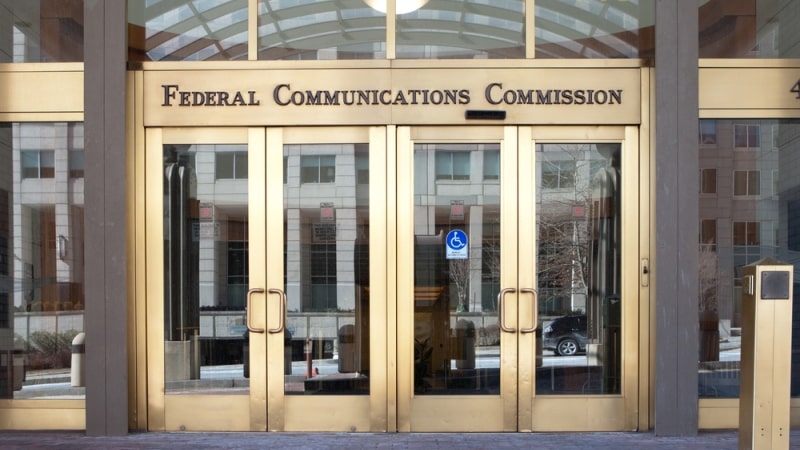
The Federal Communications Commission (FCC) today approved by a 3-1, party-line vote a series of steps that its Republican-majority commissioners argue will speed the pace of infrastructure installations necessary for carriers to provide 5G wireless services, but which have drawn strong protest from states and localities in the run-up to today’s vote who object to restrictions on their ability to govern.
The FCC took two actions today. The first was approving a declaratory ruling that sets policy stating when state or local regulation of wireless infrastructure deployment constitutes an “effective prohibition” of service under Federal law, and declaring that Federal law limits the abilities of states and localities to charge “fees that are greater than a reasonable approximation of objectively reasonable costs” for processing infrastructure siting applications and for managing infrastructure deployments in rights of way.
The FCC said its ruling “removes uncertainty” by identifying specific fee levels that can be charged for “small” wireless facility deployments–such small-cell equipment deployments are vital to achieving network density for 5G service–and provides guidance on when state and local non-fee requirements such as aesthetic and undergrounding requirements may constitute and effective prohibition of service.
Second, the agency imposed new “shot clock” rules that require state and local authorities to take action on infrastructure siting applications within specific timeframes, and issued a conclusion “that all state and local government authorizations necessary for the deployment of personal wireless service infrastructure are subject to those shot clocks.” The FCC also found that failure to act within the shot-clock limit on applications for new small wireless facilities constitutes a “presumptive prohibition” by state and local government on the provision of services.
The action taken today sets a 60-day clock on preexisting-structure collocation applications for small wireless facilities, and a 90-day clock on new builds for small wireless facilities, and codifies the 90 and 150-day clocks set in 2009 for wireless facility deployments that do not qualify as small-cell deployments.
Republican FCC Commissioner Brendan Carr argued last week that while the FCC is taking steps to make more spectrum available over the next few years to facilitate 5G service, the agency also needs to act quickly on infrastructure siting issues in order to boost cell-site deployments. He said the FCC’s vote on wireless infrastructure siting rules would help spur a dramatic increase in cell-site installations required to fully enable 5G service.
At the same time, Democratic Commissioner Jessica Rosenworcel was just as enthusiastic as Carr about encouraging carriers to deploy 5G infrastructure and services, but said the FCC should find ways to “incentivize states and localities to be our partners” in infrastructure deployment rather than approve an order that overturns their existing rules. “I’m not sure a few bureaucrats in Washington can do that,” she said, and warned that approval of the wireless infrastructure order “may only speed our way to the courts.”
